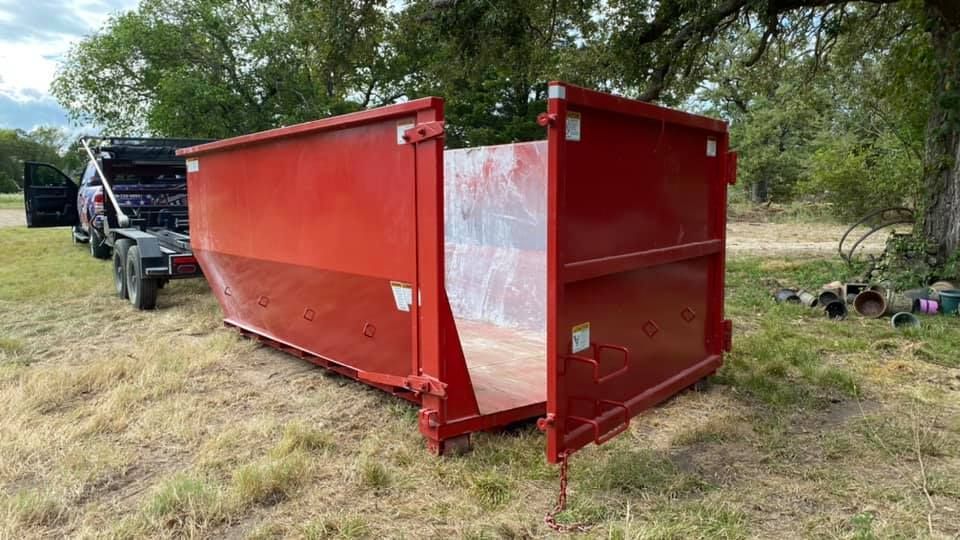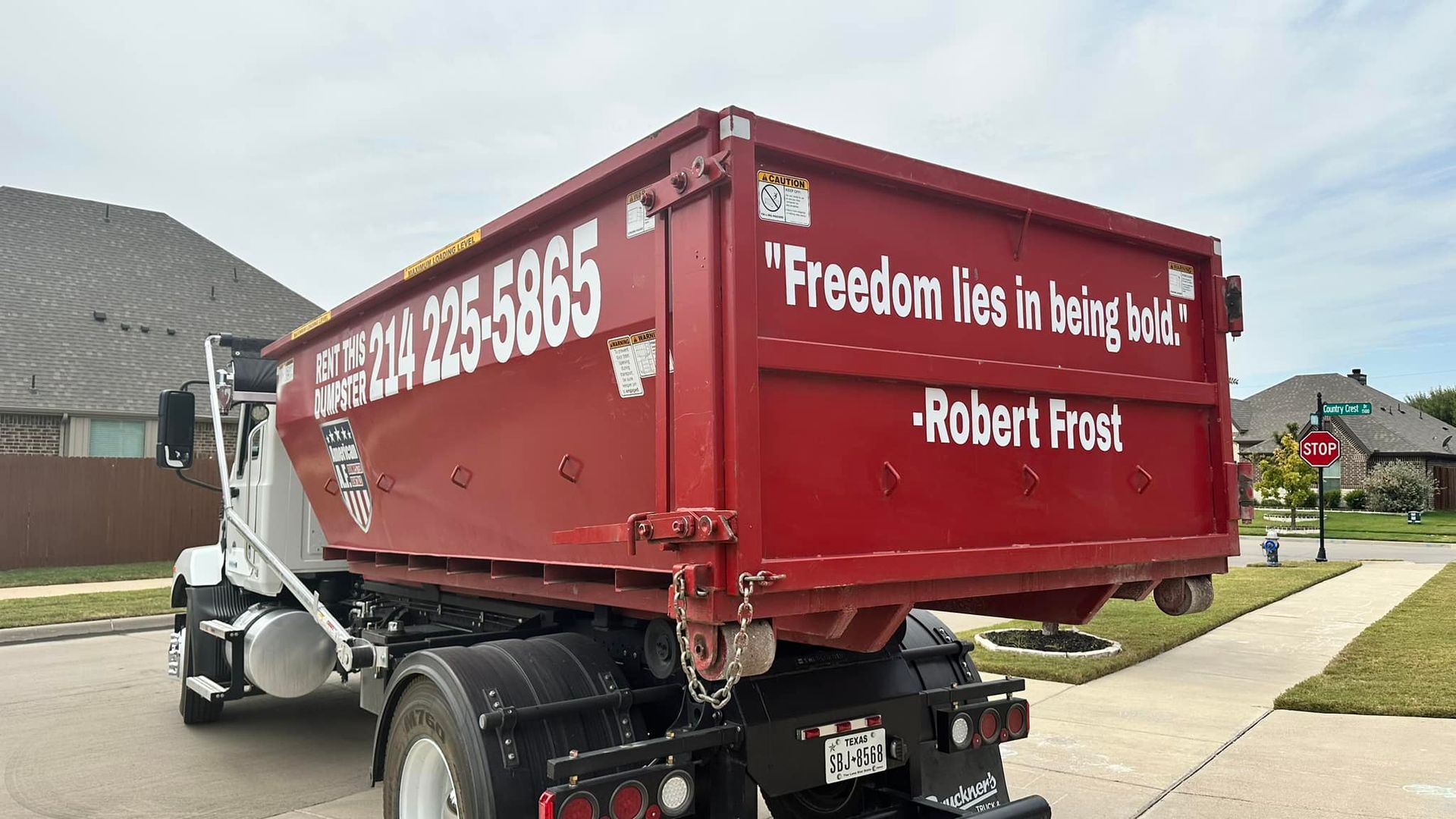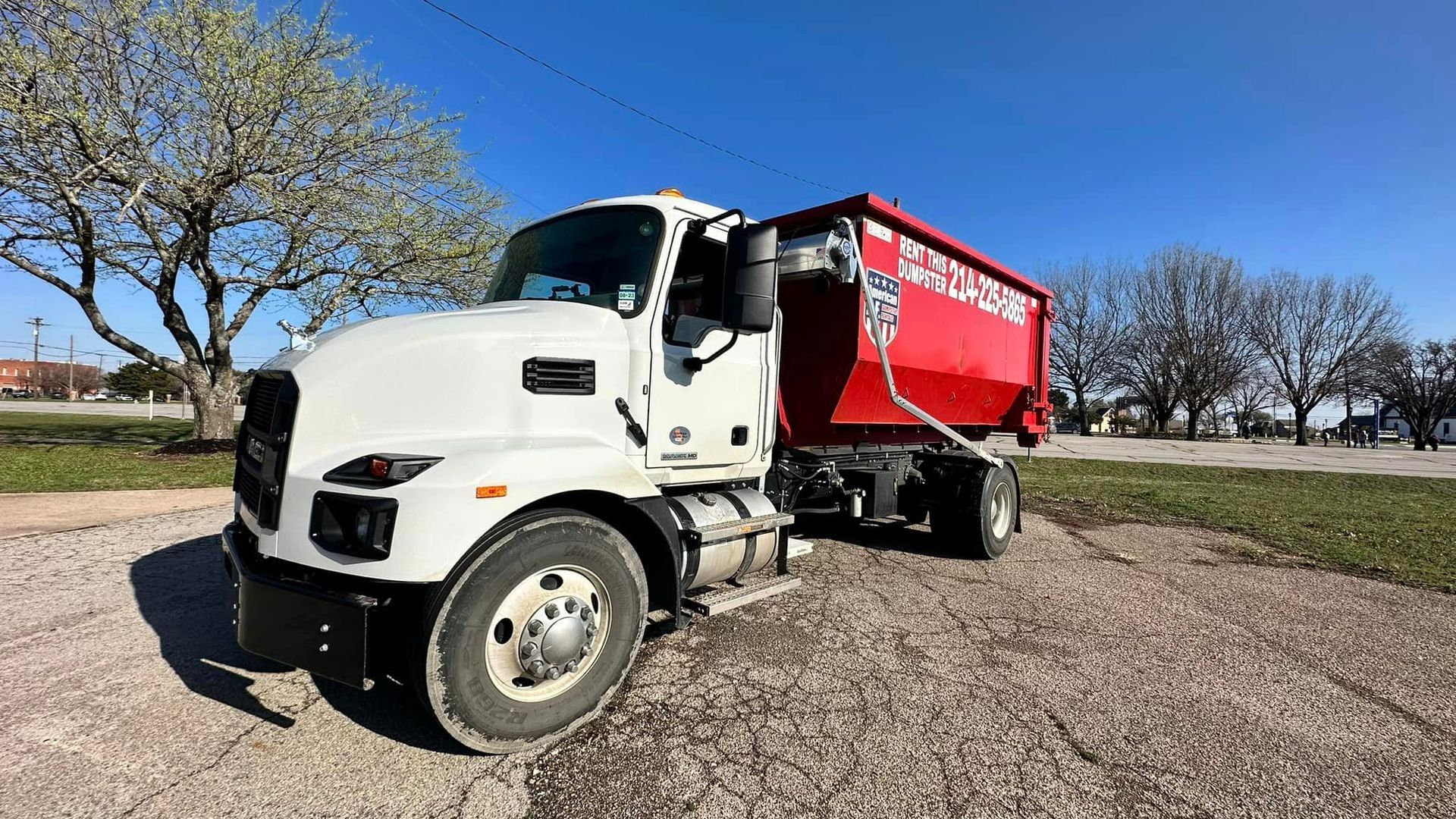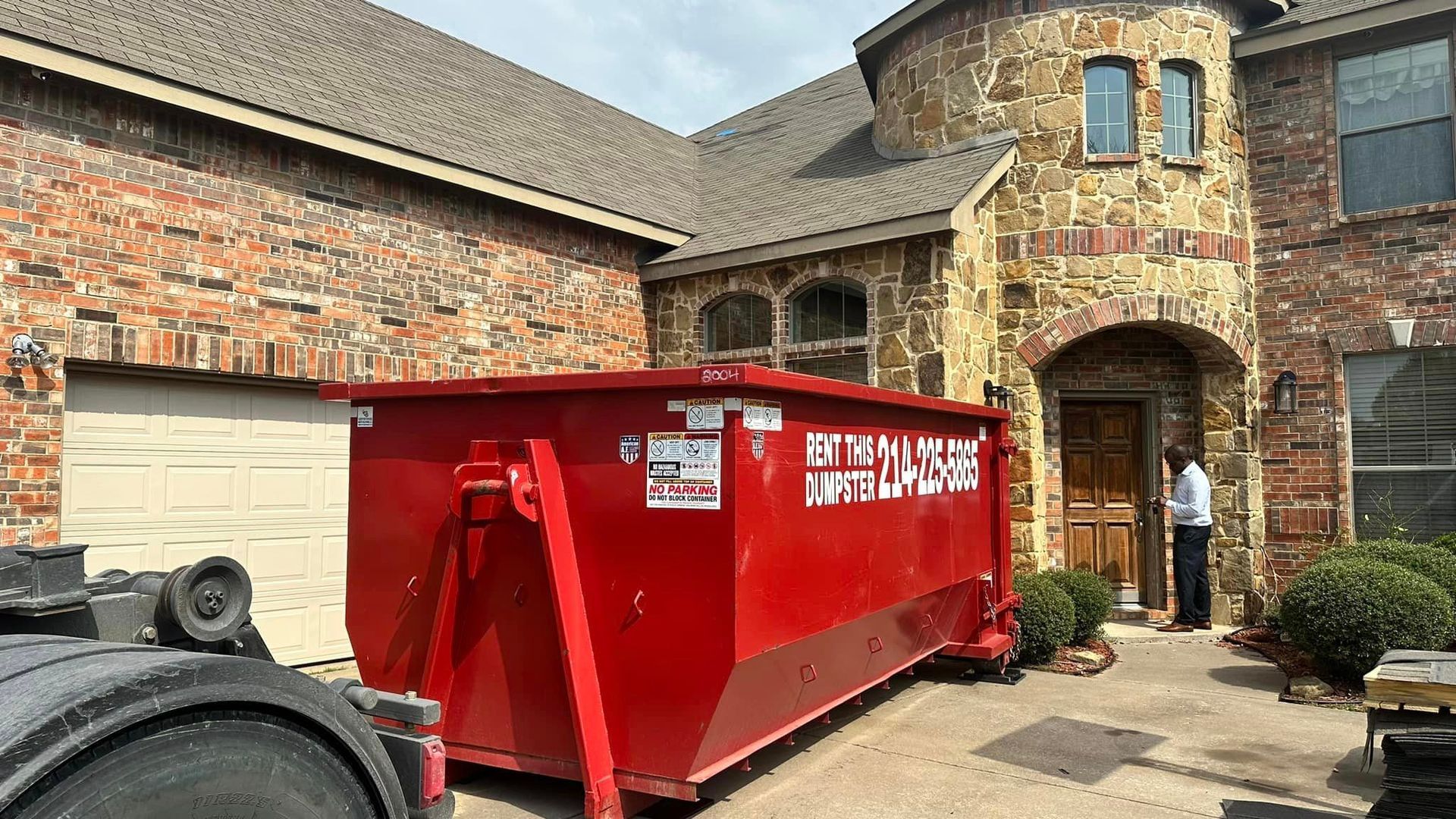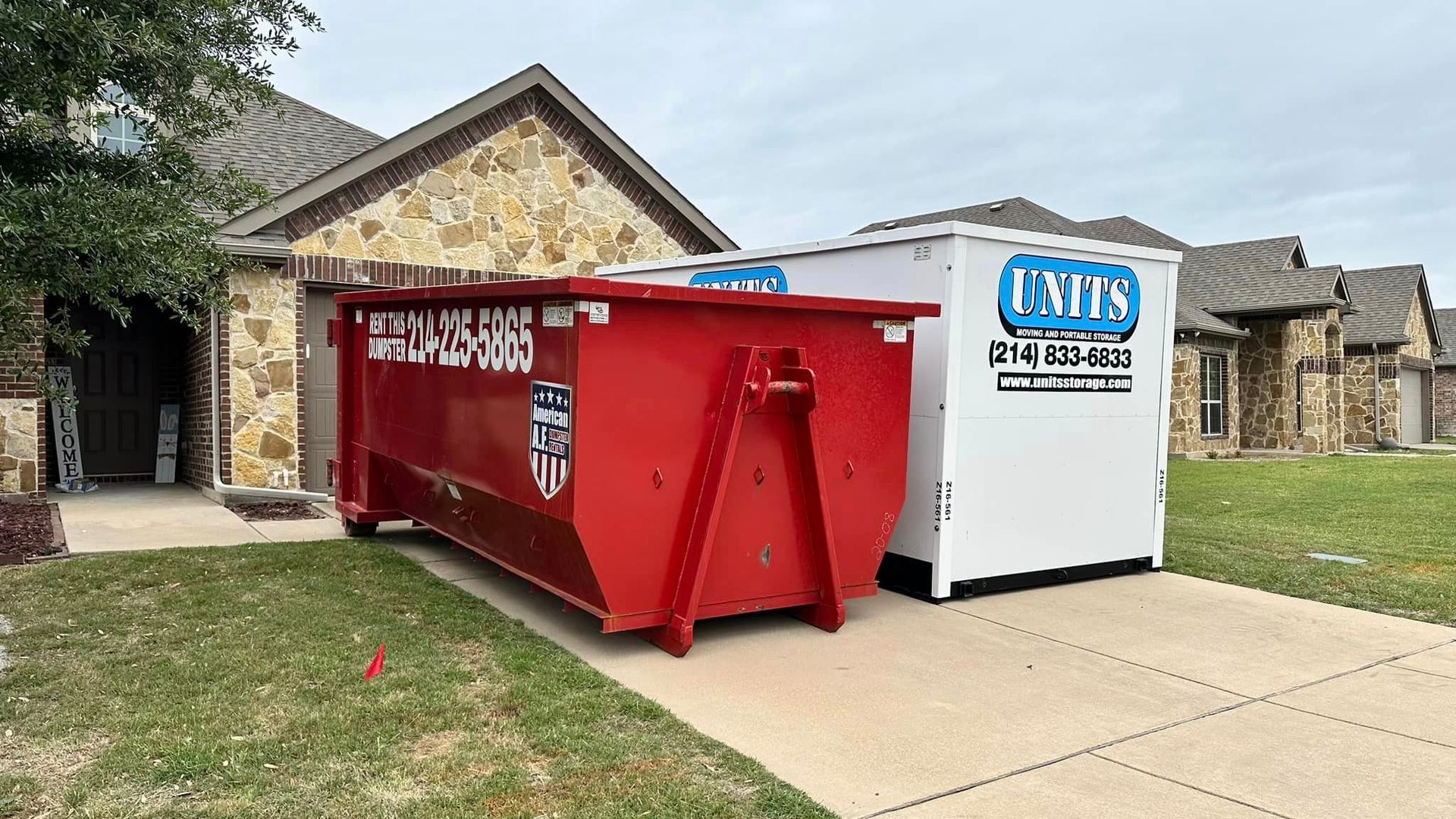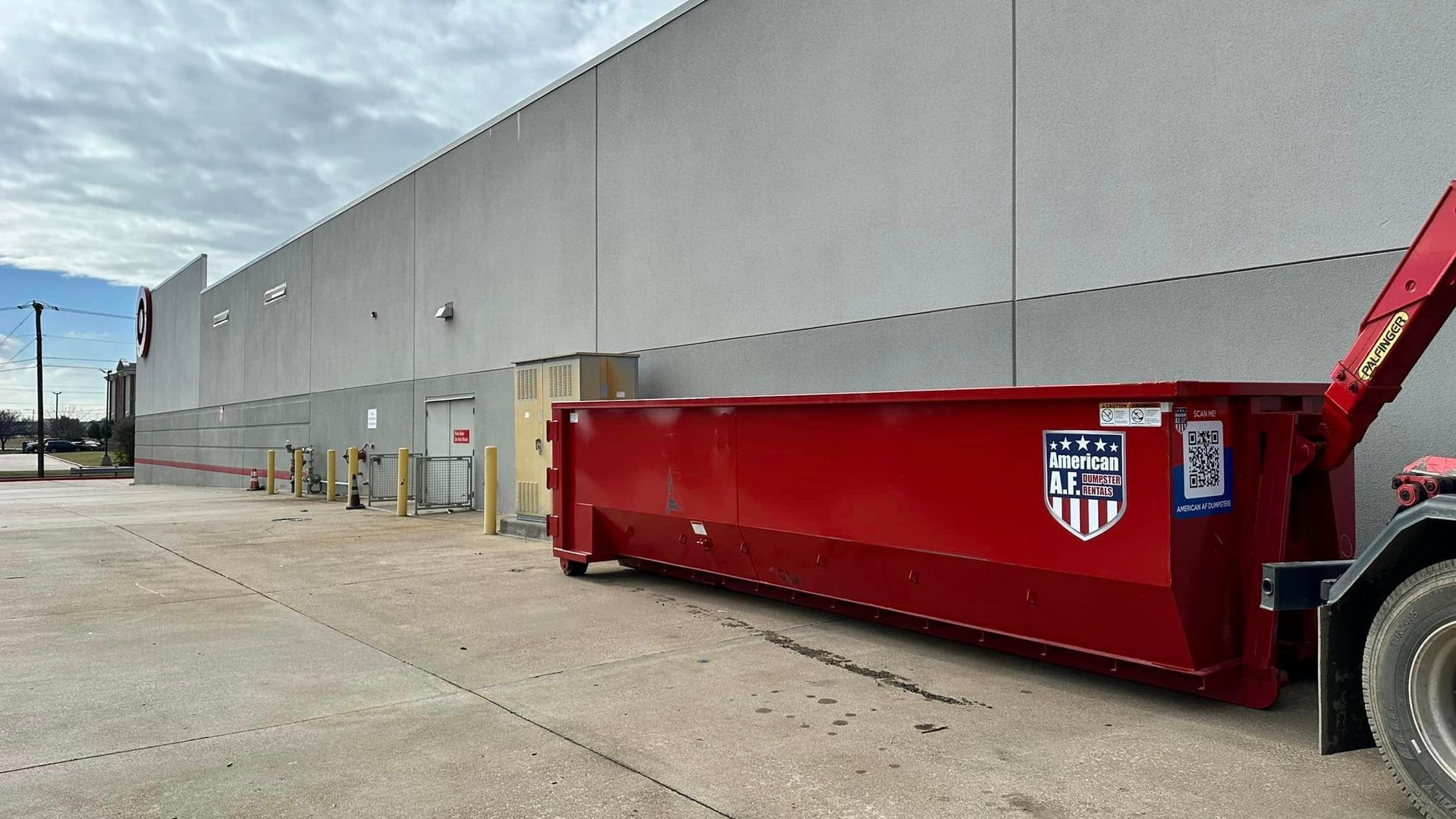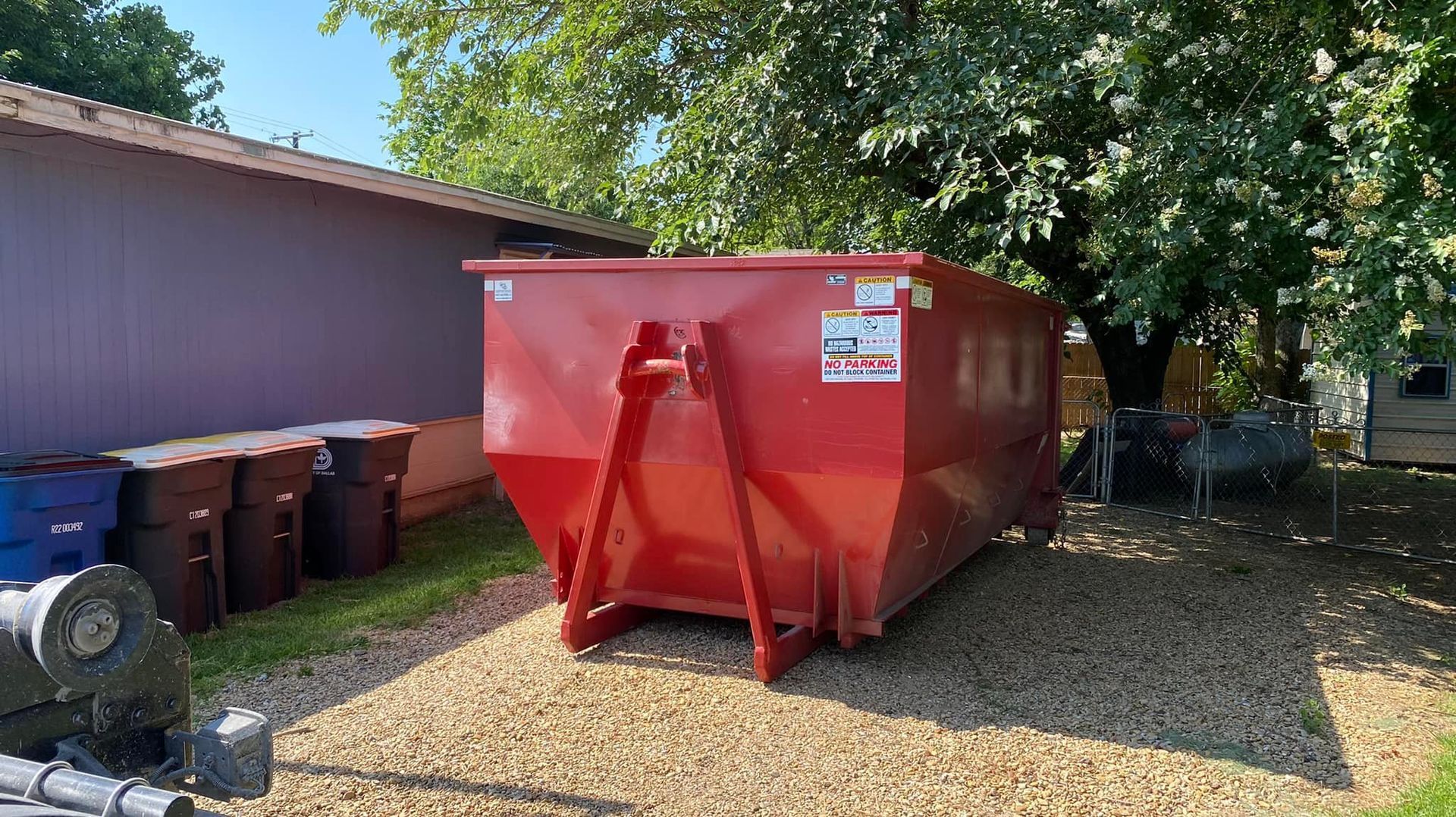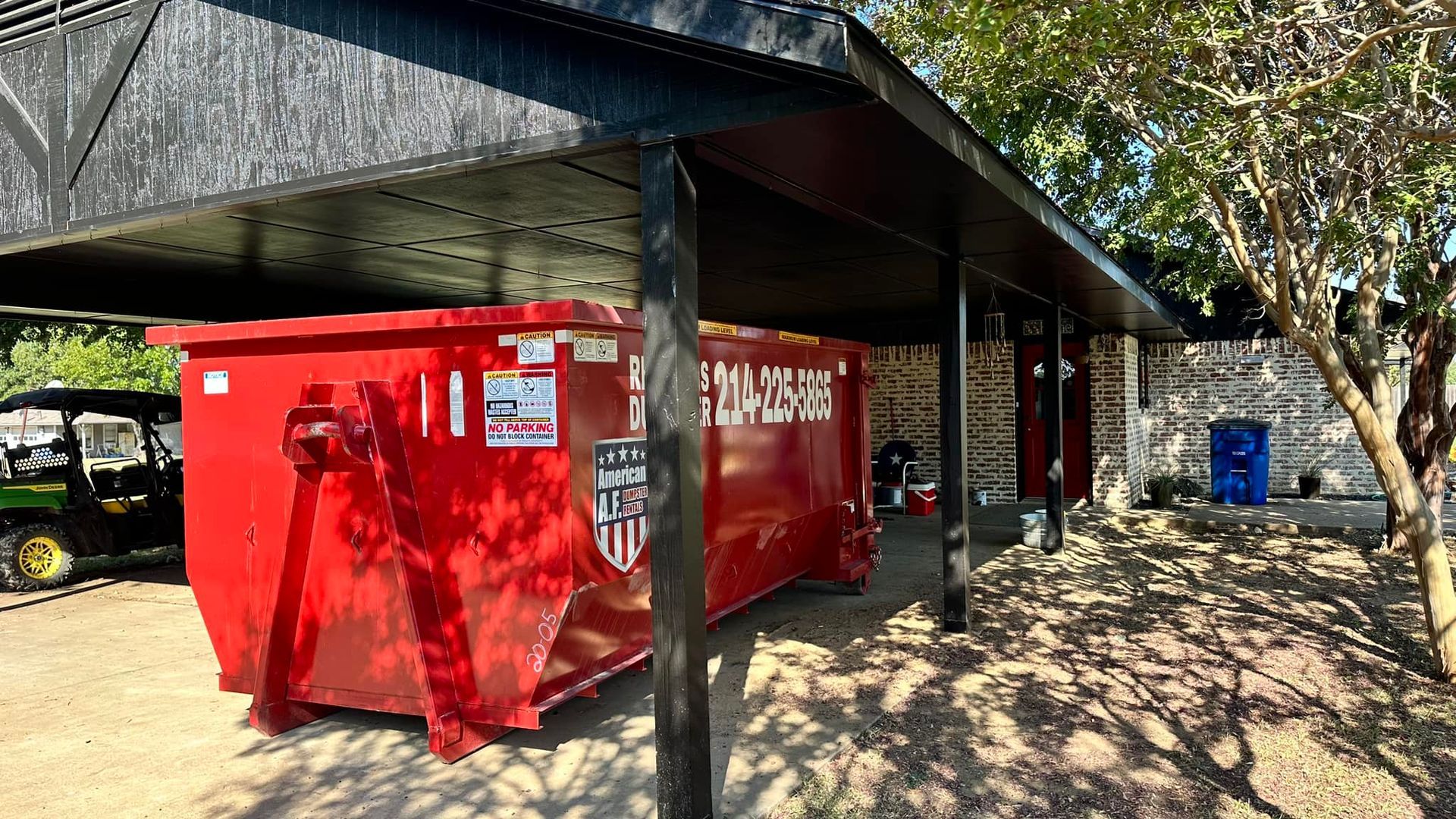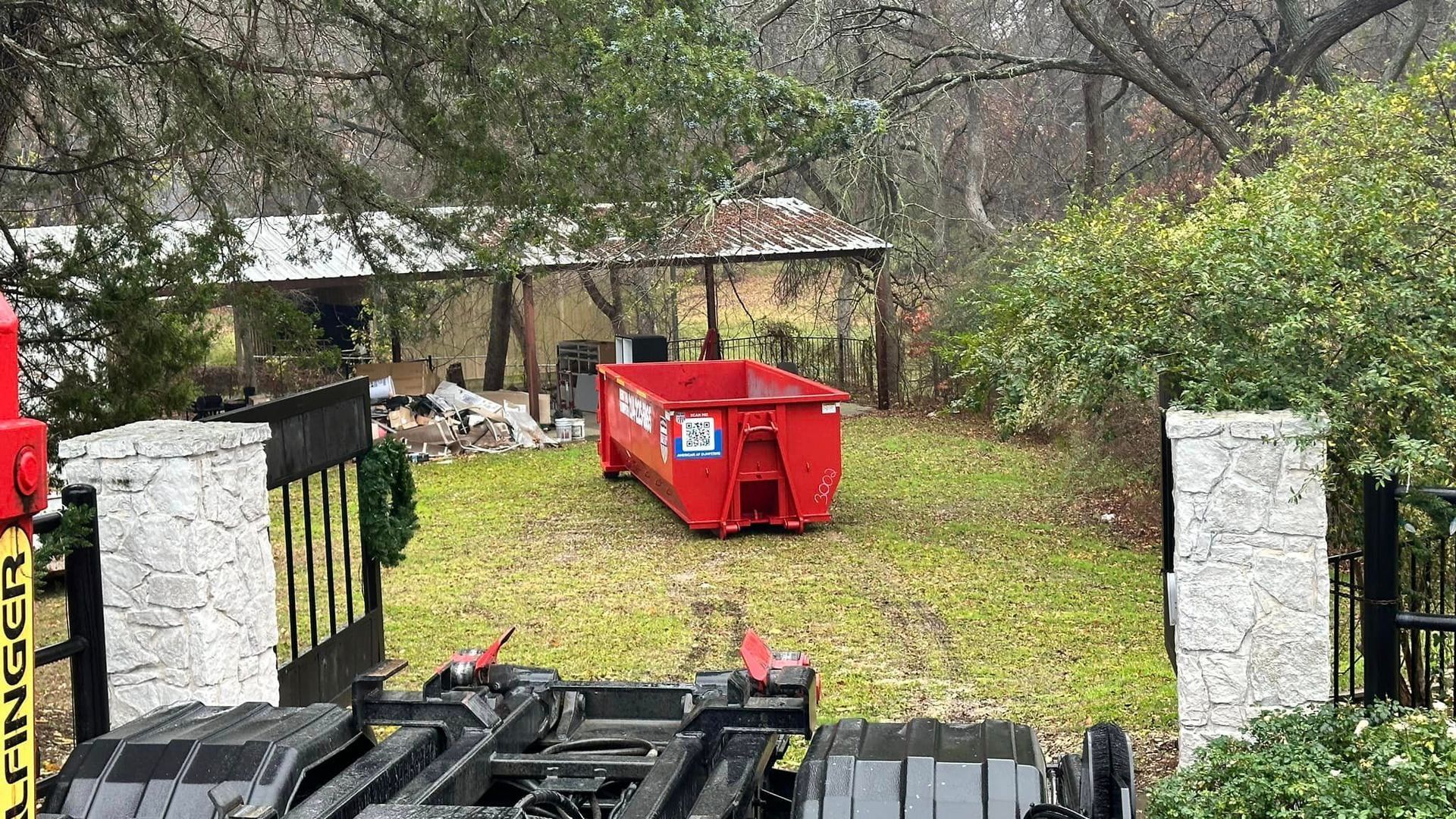The Different Types of Dumpster Rentals
HOW MANY DIFFERENT TYPES OF DUMPSTER RENTALS ARE THERE?
There are several types of dumpster rentals, including roll-off, trailer, dumpster bag, front load, rear load, and specialized dumpsters like concrete dumpsters, each designed for specific waste management needs in various contexts such as commercial projects and home renovations.
How Many Dumpsters to Demo a House?
The Different Types of Dumpster Rentals -Explained
Understanding the various styles of dumpsters is crucial for anyone involved in waste management, whether it's for a commercial project, a home renovation, or even a large-scale cleanup. Different projects require different types of dumpsters, and knowing the right one can save both time and money. This blog will guide you through the different dumpster styles, their uses, and how to choose the right one for your project.
Residential Dumpsters
Residential dumpsters are essential for homeowners and property managers, offering versatile solutions for a variety of home projects. Available in several styles, including roll-off, bag, and trailer dumpsters, they cater to diverse needs ranging from minor home cleanups to extensive renovation work.
Roll-Off Dumpster
Roll-off dumpsters are a common sight at construction sites and are known for their large capacity and open top. They come in various sizes, typically measured in cubic yards, and are ideal for handling a large amount of waste, such as construction debris and large items. Their design allows for easy loading of waste materials, and they are often used in commercial construction projects, demolition projects, and major cleanouts. Roll-off containers are transported via special roll-off trucks, making them a perfect solution for both residential and commercial projects.
- Sizes and Capacity:
Roll-off dumpsters are available in multiple sizes, typically ranging from 10-yard to 40-yard dumpsters. The 10-yard dumpster is suitable for small projects like garage cleanouts, while the 40-yard dumpster is perfect for large-scale construction projects.
- Rental Tips:
When choosing a rental service, consider factors like pricing, rental duration, and the company’s policy on overage charges. It’s also important to assess their customer service and reliability.
- Local Regulations:
Be aware of local regulations regarding dumpster placement and permits, especially if you plan to place the dumpster on public property.
- Prohibited Materials:
Generally, hazardous materials, flammable liquids, and toxic substances are prohibited in roll-off dumpsters. Always confirm with the rental company for a specific list of prohibited items.
For more information on what can be put in a residential dumpster, do yourself a favor and check out this blog ‘What Can You Put in a Dumpster?’.
Trailer Dumpsters
Trailer dumpsters are distinct from roll-off dumpsters. They are attached to a trailer and can be towed behind a vehicle, making them more mobile. This type of dumpster is ideal for projects that require moving the dumpster to different locations within a project site, such as large residential use or commercial projects like at gas stations or retail stores. They are also a good choice for sites where a standard roll-off dumpster cannot easily access, like narrow streets or crowded urban areas.
- Mobility Benefits:
The primary benefit of trailer dumpsters is their mobility, allowing them to be easily relocated. This is particularly useful for projects spread over multiple areas or sites with limited access.
- Ideal Scenarios:
Trailer dumpsters are perfect for urban construction projects, residential remodeling, and events where waste needs to be managed at multiple locations.
- Rental Process:
When renting a trailer dumpster, inquire about the rental period, potential additional fees for relocation, and weight limits.
- Loading Tips:
To load efficiently, distribute waste evenly and avoid overfilling to prevent spillage during transportation.
Bag Dumpsters
Bag dumpsters, also known as a "bagster", are a more flexible and temporary solution for waste removal. These are large, sturdy bags that can hold up to 3 cubic yards of waste. They are perfect for smaller home projects like garage cleanouts, basement cleanouts, or yard work. The advantage of bag dumpsters is their convenience; they can be bought at local stores, filled as needed, and then collected by waste management services.
- Usage Instructions:
Start by laying the bag dumpster flat in a clear area, and then fill it up to the designated line with heavier items at the bottom. Avoid overfilling as this can make pickup challenging.
- Collection Process:
Once the bag is full, schedule a collection with the waste management service. Ensure the bag is accessible and not blocked by vehicles or other obstacles.
- Limitations:
Bag dumpsters are great for lighter materials but not suitable for heavy debris like bricks or large amounts of dirt. Be mindful of weight restrictions.
- Advantages for Small Projects:
Due to their size and convenience, bag dumpsters are ideal for small-scale projects, especially where space for a traditional dumpster is limited.
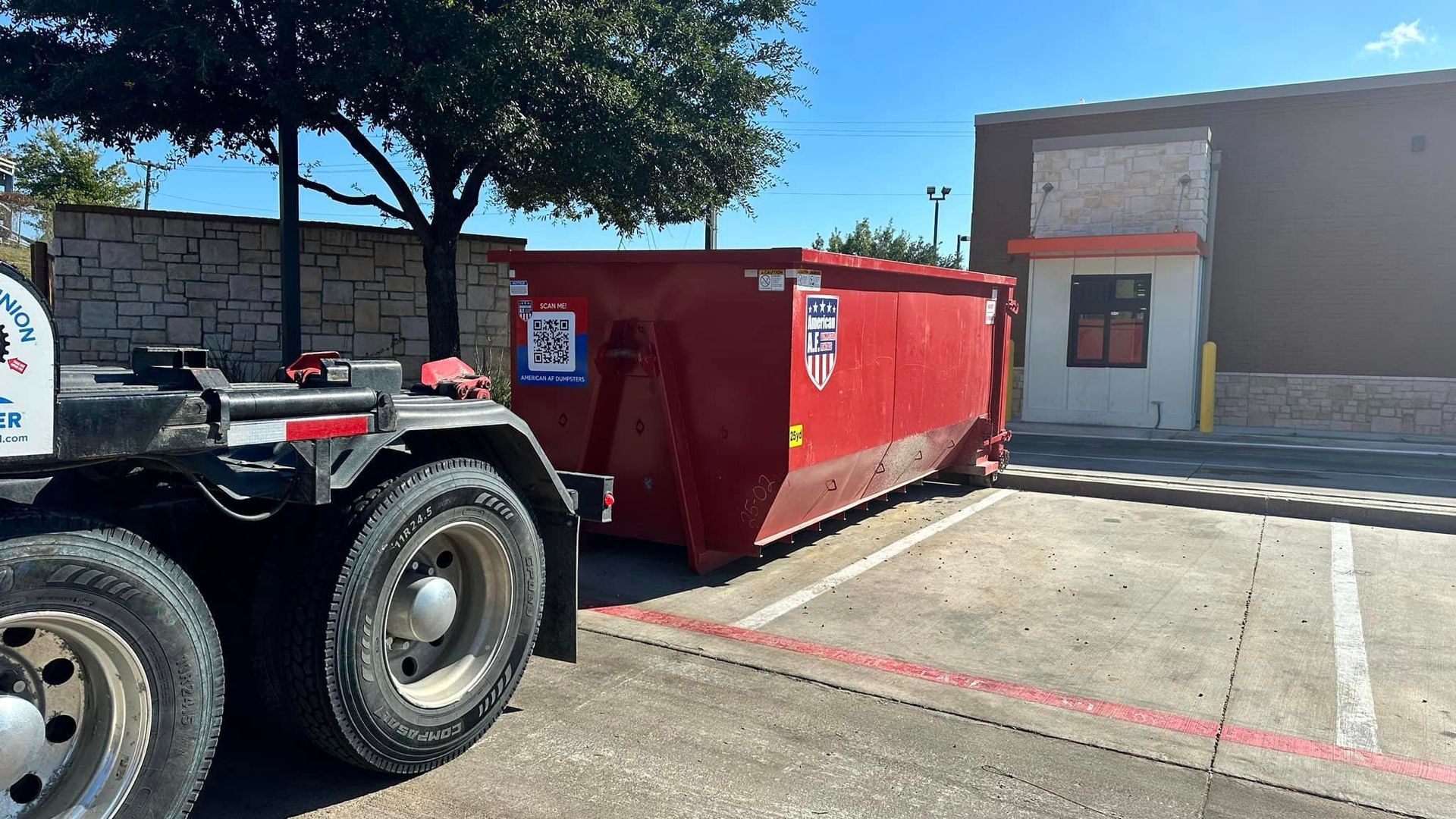
NEED A DUMPSTER?
Commercial Dumpsters
Commercial dumpsters are a staple for small businesses and large corporations alike. They come in two main types: front load and rear load dumpsters, each suited for different types of waste management needs.
Front Load Dumpster
Front-load dumpsters are commonly used by businesses like shopping malls, restaurants, and apartment buildings. They are designed to be emptied by a garbage truck that lifts the dumpster over the front of the truck. Front-load dumpsters are ideal for businesses that generate a regular amount of waste and require frequent pickup. They come in a variety of sizes and often have lids to keep pests out and odors in.
- Service Frequency:
Businesses can set up a regular pickup schedule based on their waste generation, ranging from multiple times a week to bi-weekly.
- Customization Options:
Options like lockable lids, recycling compartments, and varying sizes (from 2 to 8 cubic yards) are available.
- Cost Factors:
Costs vary based on size, frequency of pickup, and any additional services like recycling or organic waste disposal.
- Maintenance Tips:
Regular cleaning of the dumpster area and ensuring that waste is bagged can help maintain hygiene and reduce odors.
Rear Load Dumpster
Rear-load dumpsters are similar to front-load dumpsters but are emptied from the back. They are a good choice for locations with limited space, like alleys or tight parking lots. The design of rear-load dumpsters allows for easier manual loading, and they are often used by small businesses and in residential areas.
- Access Requirements:
Ideal for areas with space constraints. Ensure there is enough room for safe and efficient collection.
- Comparative Advantages:
Comparatively cheaper than front-load dumpsters and can fit in tighter spaces, but may have lower capacity limits.
- Common Users:
Often used by small restaurants, retail stores, and businesses in urban areas with limited space.
- Safety Guidelines:
Keep the area around the dumpster clear, and avoid overloading to ensure safe collection and prevent injuries.
Roll Off and Front Load Dumpsters: What's the Difference?
Comparing roll-off and front-load dumpsters, the key differences lie in their design, usage, and suitability for different kinds of waste management. Roll-off dumpsters are larger and more suitable for temporary, large-scale projects like construction jobs or large-scale cleanups. Front-load dumpsters, on the other hand, are smaller and more suited for regular, ongoing waste disposal needs of businesses and residential complexes.
The 3 Main Types of Dumpsters Used in Construction Projects
In the realm of construction, specific dumpster types are more suitable due to the nature of the work and the type of waste produced.
Construction Dumpster
Construction dumpsters, a type of roll-off dumpster, are designed to handle heavy loads and robust materials found on construction sites. They are essential for disposing of construction materials, such as lumber, metal, and concrete. These dumpsters are available in various sizes, including 10-yard, 20-yard, and 30-yard options, catering to different scales of construction projects.
Residential Dumpster
Residential dumpster rentals are geared towards home renovation and yard debris disposal. These dumpsters are similar in size compared to construction dumpsters but ideal for residential use, including home cleanouts and yard waste removal. They come in a range of smaller sizes, suitable for limited space like a home driveway or a small parking lot.
Concrete Dumpster
Concrete dumpsters are specialized roll-off containers specifically designed for disposing of concrete and other heavy, inert materials. They are a crucial tool on sites where concrete demolition, removal, or construction is taking place. Given the extreme weight of concrete, these dumpsters are built sturdier and are often available in smaller sizes like 10-yard or 20-yard dumpsters to accommodate weight limits and ensure safe transportation. Concrete dumpsters are essential for projects involving sidewalk repairs, driveway replacements, or any construction work involving significant concrete waste.
To calculate the weight of your concrete, we recommend using this
concrete weight calculator.
How to Choose the Right Dumpster Size for Your Project
Selecting the right dumpster size for your project is a crucial step in effective waste management. This decision is largely based on estimating the volume of waste your project will generate, measured in cubic yards, as dumpster sizes are categorized by this measurement.
- Estimate Waste Volume:
Begin by estimating the amount of waste your project will produce. A cubic yard is a volume measure that is 3 feet long by 3 feet wide by 3 feet high. To visualize, consider that a standard kitchen stove takes up approximately 1 cubic yard.
- Consider Project Scale:
The scale of your project plays a significant role. For smaller projects like home cleanouts, garage cleanups, or minor renovations, you may need a dumpster ranging from 10 to 20 cubic yards. In contrast, large-scale projects such as commercial renovations or major construction jobs often require larger dumpsters, typically from 20 to 40 cubic yards or more.
- Type of Waste:
The nature of the waste also impacts the size selection. Heavier materials like concrete or earth may require a sturdier dumpster with a higher weight capacity, even if the volume is smaller.
- Local Regulations:
Be aware of any local regulations regarding dumpster size and placement. Some areas may have restrictions on the size of dumpsters that can be placed on public property or residential streets.
- Consult with Rental Companies:
Engage with dumpster rental companies and provide them with details about your project. They can offer valuable advice based on their experience and help you select the right size dumpster.
- Factor in Additional Charges:
Remember, choosing a dumpster that’s too small might result in needing an additional dumpster, while choosing one too large could lead to paying for unused space. Be mindful of potential overage fees if the dumpster ends up holding more waste than its maximum capacity.
By accurately estimating your waste in cubic yards and considering these factors, you can select the most appropriate dumpster size for your project, ensuring efficient and cost-effective waste management. For more insight on how to choose the best dumpster for your project, we recommend reading this blog, ‘Choosing the Right Dumpster Size for Projects’.
Key Takeaways: The Different Types of Dumpster Rentals Explained
- Understanding Dumpster Styles:
Recognizing the different types of dumpsters and their specific uses is crucial for efficient waste management in various contexts, from commercial projects to home renovations.
- Residential Dumpster Versatility:
Residential dumpsters, including roll-off, bag, and trailer types, provide flexible options for a range of home projects, accommodating different scales and types of waste.
- Roll-Off Dumpster Benefits:
Ideal for large quantities of waste, roll-off dumpsters are common in construction and major cleanout projects. They come in various sizes, making them suitable for both residential and commercial uses.
- Trailer Dumpster Mobility:
Trailer dumpsters offer the unique advantage of mobility, ideal for projects requiring waste management at multiple locations or where space is constrained.
- Bag Dumpster Convenience:
Bag dumpsters are a practical solution for smaller projects, offering ease of purchase, filling, and collection, especially in residential settings with limited space.
- Commercial Dumpster Options:
Front load and rear load dumpsters cater to different business needs, with factors like waste volume, pickup frequency, and space availability influencing the choice.
- Choosing the Right Size:
Estimating waste volume in cubic yards is key to selecting the right dumpster size. This estimation helps in choosing an appropriately sized dumpster, whether for small home renovations or large commercial projects.
- Local Regulations and Consultation:
Be aware of local regulations regarding dumpster placement and consult with rental companies for expert advice and to understand any additional charges or fees.
- Specialized Dumpsters for Construction:
In construction, specific dumpsters like concrete dumpsters are necessary for handling heavy, inert materials, underscoring the need for choosing the right type based on the waste material.
By considering these key points, individuals and businesses can navigate the complexities of dumpster rentals more effectively, ensuring they choose the right type and size of dumpster for their specific waste management needs.

Powered by MagnateProSEO
All Rights Reserved | American AF Dumpsters

